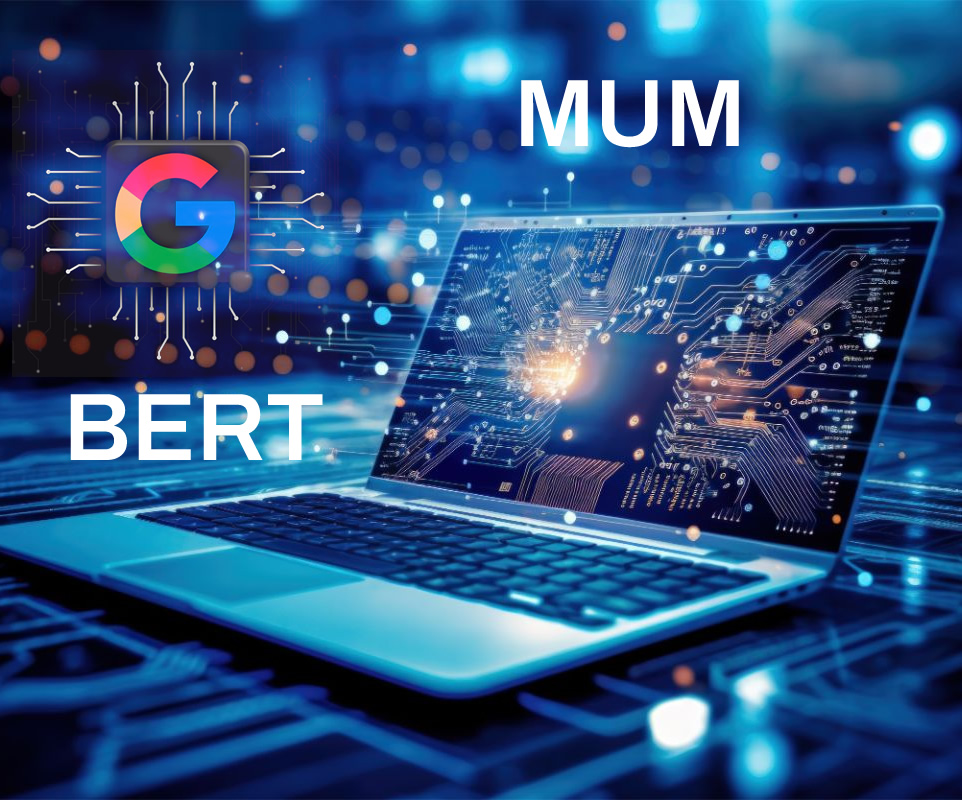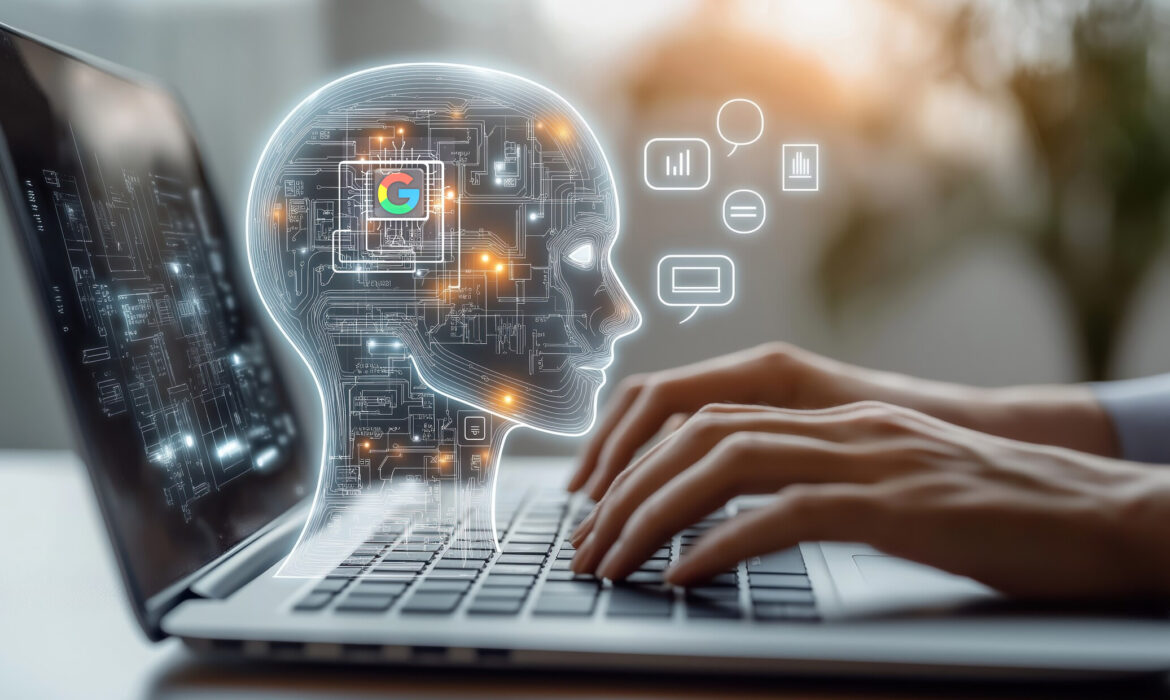How AI Is Changing the Game in SEO (And Why That’s Great News for Your Website)
seo
has always been a bit of a moving target, hasn’t it? Just when you think you’ve nailed it—great keywords, solid backlinks, meta tags on point—Google tweaks its algorithm, and suddenly you’re wondering if you need to go back to the drawing board.
But here’s the thing: SEO isn’t just evolving randomly anymore. It’s being transformed—and in a big way—by artificial intelligence. The rise of AI is reshaping how websites are ranked, how we create content, how users interact with search engines, and even how we do SEO in the first place.
So if you’re wondering what role AI plays in SEO today (and why it matters for your business), you’re in the right place. Let’s dive in.
First, What Exactly Is AI in SEO?
We’re talking about tools that can:
- Analyze your competitors in seconds
- Suggest better keywords
- Predict how content will rank before you even publish it
- Help you write content that matches what your audience is searching for
- And yes—even audit your site and suggest improvements on the fly
Sounds futuristic? It’s already happening.
Artificial intelligence (AI) in the context of SEO refers to using smart systems and algorithms to analyze data, automate tasks, and make predictions that help improve your website’s search performance.
How Google Uses AI (And Why You Should Care)


Let’s start with the big player: Google. Google’s search engine has been using AI for a while now—most notably through something called RankBrain and, more recently, BERT and MUM.
- RankBrain helps Google understand search queries, even ones it hasn’t seen before.
- BERT helps the search engine understand the context of words in a sentence (especially useful for long-tail queries).
- MUM (Multitask Unified Model) is taking it even further, processing and understanding multiple formats of content (text, images, even video) in multiple languages—at once.
The takeaway? Google’s getting a lot smarter. It’s no longer just looking for keywords—it’s understanding intent.
If you’re still stuffing your content with keywords or writing for bots instead of people, AI-driven search engines are going to see right through that. What they want now is quality, relevance, and context.
AI-Powered Keyword Research: Smarter, Not Harder
Remember the days of manually combing through keyword lists, trying to figure out what people might be searching for?
Those days are fading fast.
- AI-driven keyword research tools (like SEMrush, Ahrefs, Surfer, or even ChatGPT-based assistants) don’t just give you a list of keywords. They tell you: What your real audience is searching for
- How competitive each keyword is
- What search intent is behind each phrase
- What kind of content is already ranking for those keywords
This means you’re not just choosing random terms with high search volume. You’re targeting specific, relevant, rankable opportunities.
Content Creation: AI Is Your New Best Friend
Let’s talk content. We all know content is king in SEO, but creating it can be time-consuming and, let’s be honest, a little intimidating—especially if you’re trying to rank in a competitive niche.
AI tools are changing that too.
Now, before you panic: No, robots are not replacing human writers. (At least not the good ones!) But what AI can do is:
- Help you outline content based on top-performing pages
- Suggest headlines and meta descriptions
- Check for keyword usage and topic coverage
- Optimize your copy for readability and engagement
- Even generate first drafts you can polish and personalize
In short, it makes content creation faster and more strategic. And if you’ve ever struggled with writer’s block or didn’t know where to start—AI’s got your back.
SEO Audits and Site Health Checks: Automated and Accurate
Keeping your website healthy is a huge part of good SEO. Broken links, slow loading times, missing alt text—these are all things that can drag your rankings down.
AI-powered SEO audit tools can now scan your entire site in minutes and flag issues with:
- Site speed
- Mobile responsiveness
- Crawl errors
- Duplicate content
- Technical SEO gaps
Even better? Many of these tools now prioritize what to fix first based on impact, so you’re not wasting time on minor issues while major problems go untouched.
It’s like having a 24/7 digital consultant always on the lookout for what can be improved.
Personalized Search Results: Why One Size No Longer Fits All
Ever noticed how your search results on Google aren’t the same as someone else’s—even if you type in the same query?
That’s AI at work.
Search engines now personalize results based on:
- Your location
- Your search history
- The device you’re using
- Even the time of day
This means two things for SEO:
- Local SEO is more important than ever. If you’re a business with a physical location or regional focus, optimizing for local search can make a huge difference.
- User experience matters a lot. Since AI is learning what kind of content people prefer (and bounce away from), your site needs to be engaging, fast, and mobile-friendly to stay competitive.
Voice Search and AI Assistants: A New Way to Optimize
With Siri, Google Assistant, and Alexa now part of everyday life, more people are searching using voice commands. And guess what? AI plays a big role here too.
Voice searches tend to be longer and more conversational. So instead of “best sushi Cape Town,” people are saying things like, “Where’s the best sushi restaurant near me that’s open now?”
That means your SEO strategy should start including:
- Natural language phrasing
- Featured snippets (a.k.a. position zero)
- Question-based content (FAQs are gold!)
- And local SEO optimizations
The future of search is hands-free—and AI is driving it.
Predictive SEO: Yes, It’s a Thing Now
Imagine being able to predict what content will perform well before you publish it.
That’s what predictive SEO tools are starting to offer. By analyzing massive datasets, search trends, and competitor performance, AI tools can now make surprisingly accurate suggestions about:
- Topics your audience will be interested in
- Content gaps you can fill
- Seasonal trends you can prepare for
- And even which pages to update for a quick ranking boost
Instead of playing catch-up, you’re staying ahead of the curve.
Final Thoughts: Embracing AI Doesn’t Mean Losing the Human Touch
So here’s the big question: Does all this mean that SEO is becoming a job for machines?
Not at all.
In fact, AI is making human SEO experts more powerful than ever. It’s taking the grunt work out of data analysis, freeing up more time for creative strategy, storytelling, and brand-building—the stuff that really makes a website stand out.
At the end of the day, search engines are trying to serve real people. And real people want content that speaks to them, solves their problems, and earns their trust.
That’s where you come in.
TL;DR – What You Need to Know
- AI is changing SEO in major ways—from how Google ranks sites to how we do keyword research and content creation.
- AI tools make SEO faster, smarter, and more data-driven.
- You still need a human touch: great content, smart strategy, and a focus on user experience.
- If you embrace AI (instead of fearing it), you’ll be ahead of the competition—not chasing them.
Want to see how your site stacks up?
Get Free SEO
Analysis?
We use advanced AI-powered tools to deeply analyze your website, uncovering hidden opportunities to improve performance, SEO, and user experience.


